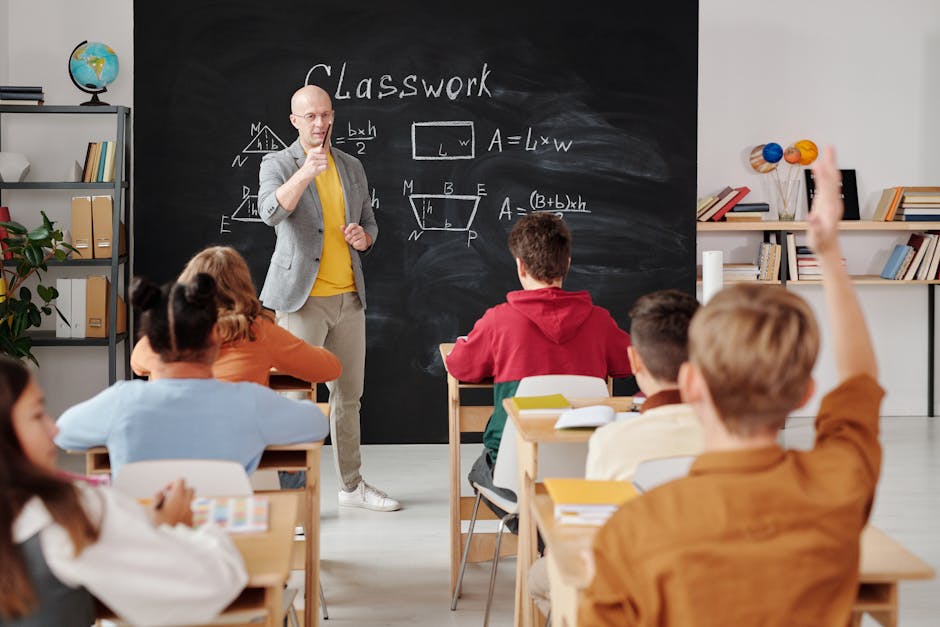Gifted Education Learning Standards
The world of education is ever-evolving, continually striving to better equip our future generations. A core facet of this continual evolution is the emphasis on nurturing the exceptional and special talents of gifted students. A proper understanding of gifted education learning standards is vital for any professional involved in formulating or implementing education strategies.
Gifted education learning standards outline the unique educational requirements of gifted and talented students, aiming to foster their exceptional talents and help them reach their full potential. They serve as a roadmap for educators and policymakers, guiding them in creating a more inclusive and diverse learning environment . Understanding these standards is crucial to ensure that gifted students receive the proper guidance they need to thrive.
Stay with us as we delve deeper into the subject, discussing the intricacies involved in developing effective gifted education learning standards .
Importance of Gifted Education Programs

Gifted education programs are integral to nurturing the talent and intellect of exceptional students. These unique individuals thrive in environments that stimulate their capabilities beyond regular classroom standards .
Gifted programs foster a robust and challenging academic setting. These innovative platforms encourage children to explore their unique talents, abilities and foster intellectual curiosity.
Moreover, these programs play an essential role in social growth. Gifted students often feel alienated in standard classrooms, but specialized programs provide a safe space where they feel accepted and understood.
Finally, beyond learning, these programs mold future leaders , innovators and catalysts of change through targeted strategies that enhance their problem-solving skills, creativity, and critical thinking.
Indeed, gifted education programs are pillars in the holistic development of our society's brightest minds.
Identification Process for Gifted Students

The process of identifying gifted students commences with a multi-faceted approach.
Initial stages involve recognizing those who exhibit signs of advanced capabilities in areas such as learning speed, problem-solving abilities, or understanding complex concepts. Educators, parents, or peers can flag potential candidates for further evaluation.
The next phase includes objective assessments . Standardized tests and cognitive ability examinations aid in perceiving learners' intellectual prowess. These quantitative measures serve as concrete evidence of a child's potential giftedness.
Moreover, gifted students often exhibit distinct emotional and behavioral characteristics. Thus, psychologists may perform qualitative evaluations to assess these traits further.
Finally, a collaborative decision is formulated by a team of educational professionals and family members. This ensures a comprehensive and holistic analysis of the student, resulting in an accurate identification.
The goal is to ensure that every gifted individual is accurately identified and provided with the needed support and resources to maximize their potential.
Understanding Different Levels of Giftedness

Giftedness is not one-size-fits-all, as our understanding of it is far from binary. It exists on a broad spectrum, with different levels that are each unique and complex.
At one end, we have mildly gifted individuals who often excel in a traditional educational environment . Their intellectual abilities allow them to understand and process information faster than their peers.
Next, the moderately gifted. These individuals may thrive in a regular classroom but still need additional challenge and enrichment.
Then we have the highly, exceptionally, and profoundly gifted individuals. Their advanced intellect requires a specialized, individualized learning approach which the regular curriculum may not provide.
Understanding these different levels of giftedness is crucial in shaping an enriching educational experience for all gifted learners. Each level not only displays distinct intellectual capabilities but also unique emotional and social needs.
Just as we cater to varying abilities in mainstream education, achieving the right fit in gifted education is equally paramount.
Specialized Instruction Methods for Gifted Students

Gifted students think and learn differently, therefore, specialized instruction methods are widely used to tap into their potential. One such method integrates their advanced cognitive capabilities with challenging material. This ensures that these students are constantly engaged and interested in the learning content.
Another crucial instruction method is differentiating instruction, which caters to their unique learning styles and paces. By presenting information in various ways, we can help gifted children to better grasp and retain information.
Moreover, project-based learning can stimulate their creativity and problem-solving skills. They can apply theoretical knowledge in real-world tasks, fostering a deeper understanding of the material.
Lastly, a focus on social-emotional learning is paramount as gifted students often face social and emotional struggles.
Through adapting these methods, we can help gifted learners to reach their exceptional academic potentials and aid in their overall development.
Role of Parents in Gifted Education

Parents play a pivotal role in gifted education. Their keen eye recognizes signs of exceptional skill in their child at an early age. But the task doesn't stop there.
It's the parents’ responsibility to provide timely support and appropriate educational resources to nurture these talents. They can do this by liaising with teachers and educational psychologists for tailored learning plans .
In the home environment, parents can create a stimulating atmosphere for their gifted child, offering complex puzzles and engaging in thought-provoking discussions.
Moreover, emotional backing is crucial. Parents need to empathize with the challenges a gifted child may face , such as frustration or under-stimulation, and provide comfort and understanding.
Remember, nurturing a gifted child is a shared responsibility between parents and educators alike.
Societal and Cultural Views on Gifted Education

Gifted education often sparks spirited discussions across various societal and cultural spheres.
In some cultures, gifted education is viewed as an elitist concept, ostensibly discriminating against those without such perceived talents. It's a poignant argument, advocating for a more egalitarian learning environment where all children's abilities are valued equally.
Contrastingly, other societies cherish and nurture these gifted minds. The view here is predicated upon the assertion that intellectual prowess is a gift that needs fostering, rather than suppressing in the name of equality.
However, perhaps the most sensitive point resides in the cultural disparity that exists across the globe. In some cultures, traditionally undervalued, gifted education is ironically absent, thus curtailing the growth of these gifted minds.
These varying views illuminate the need for global dialogue, seeking common ground on how best to tackle gifted education . Ultimately, the goal should be to foster all children's abilities while acknowledging the unique needs of the gifted.
Challenges Within the Gifted Education System

The Gifted Education System is not without its own unique set of challenges.
Firstly, identifying gifted students can be an uphill battle. Traditional methods of identification are often subject to bias, missing out on 'hidden gifted' children from assorted backgrounds.
Secondly, providing appropriate challenges for gifted students within a regular classroom environment proves taxing . Tailored instruction often requires additional resources, straining the already-demanding workload of educators.
Moreover, supporting the social and emotional needs of gifted students is another aspect of the challenge. These learners can experience isolation due to their unique needs, exacerbating the struggle to fit in.
Lastly, we tackle the lack of sufficient investment in gifted education, resulting in a scarcity of specialised teachers to provide effective instruction .
True solutions must encompass multi-faceted approaches, accommodating these learners, not just academically, but holistically too.
The Future of Gifted Education Standards

As we trace the trajectory of gifted education standards, it appears we’re standing on the brink of momentous change.
Innovation and technology will undoubtedly play larger roles in defining and serving gifted learners. Virtual reality, interactive software, and adaptive learning systems are shaping up to become vital tools for identifying and nurturing giftedness.
Moreover, the evolving definition of intelligence and giftedness is likely to become more inclusive, considering diverse talents and abilities rather than focusing solely on traditional academic prowess.
Meanwhile, global collaboration among educators , researchers and policymakers will continue to increase, contributing to the development of more uniform, internationally recognized gifted education standards .
The future looks promising, yet full of challenges, for gifted education. It will require constant adaptation, openness to new ideas, and a commitment to ensuring that every gifted learner reaches their full potential.
